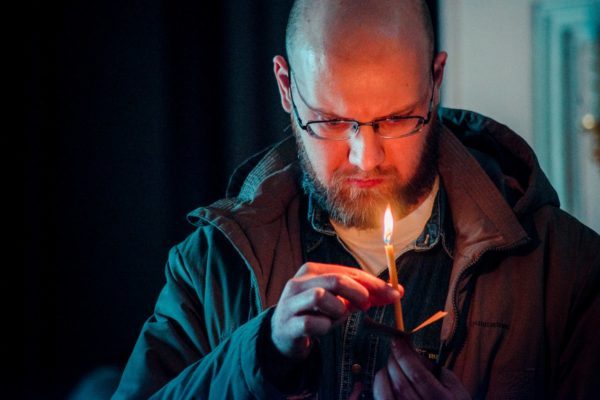You have really asked the fundamental question: What is worth living for? You are right that an external constraint to be good only proves to be a burden that eventually produces some form of mental illness either because of guilt because you ignore the “rules” or fundamentalistic self-righteousness and condemnation of others because you deceive yourself into thinking that you are keeping the “rules.” Why bother? Of course, libertinism only produces more suffering. Suffering is a symptom of our sickness and of the sickness we impose on each other and the world. Suicide may take us out of this world, but it doesn’t change us. At least from an Orthodox perspective, heaven and hell are ways to experience existence, and you don’t have to die to begin experiencing either. I know people whose life is hell and I know a few who already taste heaven. As for me, I experience hellish periods (some last moments, some days); but I smell, sometimes, the roses of heaven, and I try to follow that fragrance.
I think the problem lies in a religious milieu that tends to posit knowledge of God as either emotional high or as ridged conformity to rules. This of course is no one’s dogma, but it is the experience and practice of many, many Christians of all stripes. Finding God, if you really find and know Him, makes suffering through life worth it: suffering has meaning in Christ. The problem is how to find, really find, Christ and know Him.
Genuine life in Christ is full of paradox. I think it begins with hope, even the faintest wish that the Creator cares about me. But this care is not like the Baalim, the gods of the world, who in exchange for sacrifices and offerings of various types promise material happiness and power. This care is rather that of a conscientious doctor who desires to heal the patient, not pander to the patient’s delusions. We are very confused children, sick in our minds and hearts; and if we can begin in hope to trust the Physician—because like physiotherapy the healing process is somewhat painful—the small “deaths” we experience through forgiving ourselves and others and turning away from ways that we hurt others begins to produce a kind of resurrection in our minds and hearts. There are no rules outside our heart, but then again our hearts are sick. We need guidance, a spiritual mother or father to help us along the way. But we live in a day in which reliable spiritual fathers and mothers are rare, and most of us stubble along through trial and error, gleaning bits of wisdom from wise people here and there.
And yet hope shines like a little light in a very dark room. We take small steps toward the Light, toward the True, the Beautiful, the Simple. Along the way we learn about ourselves, how sick we really are, what’s real and what’s delusion, what’s love and what isn’t. And part of the paradox is that the less we care about our healing and health, the more clearly we see ourselves and act and think in healthy ways. The more we look at ourselves, the less we see and the more deluded we become. And so we look to a model outside ourselves: “Looking to Jesus, the Author and finisher of our faith.” I’m not talking about the Jesus of Sunday School and of nine year olds. I’m talking about the Jesus who entered the insane world of a woman who had had five husbands. The Jesus who touched the raving maniac and calmed him. The Jesus who called religious hypocrites vipers and white-washed tombs.




















